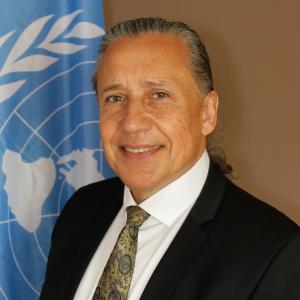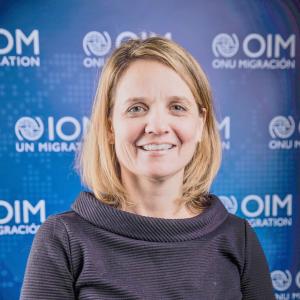

By Gustavo Gonzalez and Kristin Dadey
IN these extraordinary times of a global health pandemic, we are reminded how interconnected the world has become—our health, our food, and our economies are reliant on the safe, orderly, and regular movement of people. And, migrants—especially Overseas Filipino Workers (OFWs)– have been on the front lines in the fight against COVID 19.
While countries were locked down due to the pandemic, migrant workers continued to care for the sick and elderly, and kept essential goods and services moving. Sadly, many OFWS made the ultimate sacrifice and lost their lives in the fight against COVID 19.
At the same time, OFWs that continue to brave the pandemic face economic and social difficulties brought by the health crisis. Many of them have been laid off. Those who have kept their jobs as frontline workers endure psychological and emotional stresses.
As we celebrate International Migrants Day today, the United Nations (UN) in the Philippines wishes to honor the OFWs and all migrants for their invaluable contributions in the fight against COVID-19. The UN strongly advocates for a more inclusive response to the pandemic which doesn’t leave migrants behind, particularly now as countries around the world start massive vaccination programmes.
The Philippines has shown great leadership in the protection of OFWs, especially during these troubled times. The UN’s Migration Agency, the International Organization for Migration (IOM), appreciates the impressive actions of the Philippine Government as they have led by example and successfully repatriated more than 700,000 Filipinos– more than 300,000 of whom have been OFWs in this crisis.
The Philippines was a leader in the adoption of the Global Compact for Migration (GCM), and two years later, the Philippines continues to lead in the implementation of this historic compact. This was recently recognized when the Philippines accepted the invitation of IOM’s Director General, Antonio Vitorino to be a “Global Champion for the GCM”—one of only 15 countries globally to have that designation.
The pandemic has had massive disruptive effects on labor migration in the Philippines where the normal flow of OFWs was brought to a virtual standstill. Against this backdrop of declines in deployment and mass repatriations, we are faced with the uncertainty of how to navigate foreign labor markets as some countries begin to re-open and others go through subsequent waves of COVID-19.
A broad range of factors will affect the characteristics and scale of migration in the future. Today, the number of international migrants is estimated to be almost 272 million globally, or 3.5 percent of the world’s population, and nearly two-thirds of these are labor migrants.
This estimated number and proportion of international migrants already surpasses some projections made for the year 2050, which were in the order of 2.6 per cent or 230 million.
The decisions we make in the face of today’s unparalleled challenge to global mobility, and people on the move, will affect the global social and economic landscape for years to come.
Adopted two years ago by over 150 States, including the Philippines, the Global Compact for Safe, Orderly and Regular Migration (GCM) presents an opportunity to reimagine human mobility for the benefit of all. The GCM is an effective tool for States, the United Nations and Civil Society to discuss how best to address challenges to human mobility posed by crises like COVID-19 without compromising the human rights of people and states’ sovereignty. The actions we take today to support migrants will ensure we are better placed to respond to the challenges of tomorrow.
Recently, the Government and the UN jointly inaugurated the Bridging Recruitment to Reintegration Migration Governance (BRIDGE) programme which will work to safeguard the rights and welfare of Filipino migrants throughout the migration cycle. Implemented by IOM, ILO, UN Women, the Department of Foreign Affairs DFA and the Department of Labor and Employment (DOLE), the BRIDGE programme will support the Government in promoting fair and ethical recruitment, and in ensuring that returning OFWs are able to successfully reintegrate through an approach that puts them at the center, addresses challenges to women in particular, and is inclusive of all groups, including the OFW community and civil society organization.
The global recovery from the pandemic provides an opportunity to reimagine human mobility and build more inclusive and resilient societies, where well-managed migration migration shaped through an all of society approach harnesses the expertise and drive of migrants to reignite economies at home and abroad.
*Gustavo Gonzalez is the United Nations Resident Coordinator in the Philippines. Kristin Dadey is the Chief of Mission of the International Organization for Migration in the Philippines.
